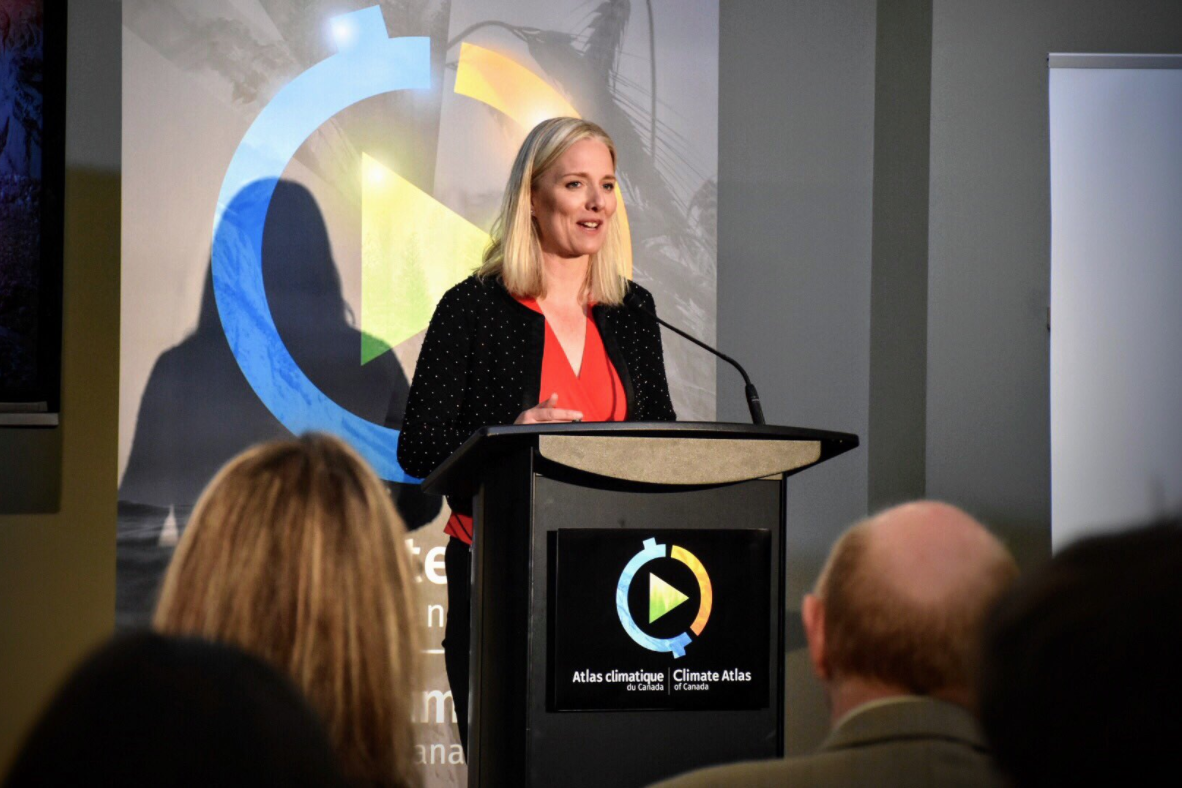Minister McKenna and Ontario Premier Kathleen Wynne met at the Royal Ontario Museum in Toronto today to announce a joint initiative between the Prairie Climate Centre, University of Winnipeg, and the International Institute for Sustainable Development (IISD).
The Climate Atlas of Canada is an interactive tool for citizens, researchers, businesses, and community and political leaders to learn about climate change in Canada. It combines data from 12 climate models, regional maps, and storytelling to bring the global issue of climate change closer to home, and is designed to inspire local, regional, and national action and solutions.
The Atlas explains what climate change is, how it affects Canada and what these changes mean in our communities. Plain-language description and analysis make climate science understandable and meaningful. It is available in both French and English.
The Climate Atlas of Canada presents data and reports indicating that nearing the end of the century (2051-2080), if we continue to follow a high carbon scenario (known as RCP 8.5), Canadian cities are projected to see significant changes:
- Calgary: 44 more frost-free days a year
- Charlottetown: 50 more frost-free days a year
- Edmonton: typical coldest winter day -28.8 °C (up from -35.1 °C)
- Fredericton: 29 more +30 °C days a year
- Halifax: typical hottest summer day 33.4 °C (up from 29.8 °C)
- Iqaluit: 103mm more precipitation each year
- Montreal: Typical hottest summer day 37.1 °C (up from 32.9 °C)
- Ottawa: 24 more +20 °C nights a year
- Quebec: 63mm more winter precipitation each year
- Regina: Typical hottest summer day 40.7 °C (up from 35.3 °C)
- John’s: 25 more +25 °C days a year
- Toronto: 43 more +30 °C days a year
- Vancouver: Typical hottest summer day 34 °C (up from 29.3°C)
- Victoria: 45 more +25 °C day a year
- Whitehorse: 50 more frost-free days a year
- Winnipeg: 36 more +30 °C days a year
- Yellowknife: 37 fewer -30 °C days a year
Documentary videos, collaboratively developed with local and Indigenous knowledge holders as well as other experts, help make local sense of the global issue of climate change. These voices of lived experience provide personal perspectives that complement the climate data and help explain the reality and the meaning of climate change in Canada.
The Prairie Climate Centre team, at the University of Winnipeg, is made up of climate scientists, social science researchers, filmmakers, and communication specialists. Their goal is to inspire citizens’ participation, to support communities, and help Canadian society move from risk to resilience. Dr. Ian Mauro has been developing climate change documentaries across Canada, which involve interviews with and insights from over 300 Canadians from all walks of life and Dr. Danny Blair has been one of Western Canada’s leading climatologists, and has worked for his entire career to create awareness regarding climate change as a pressing issues facing society.
The Atlas is available at climateatlas.ca.









